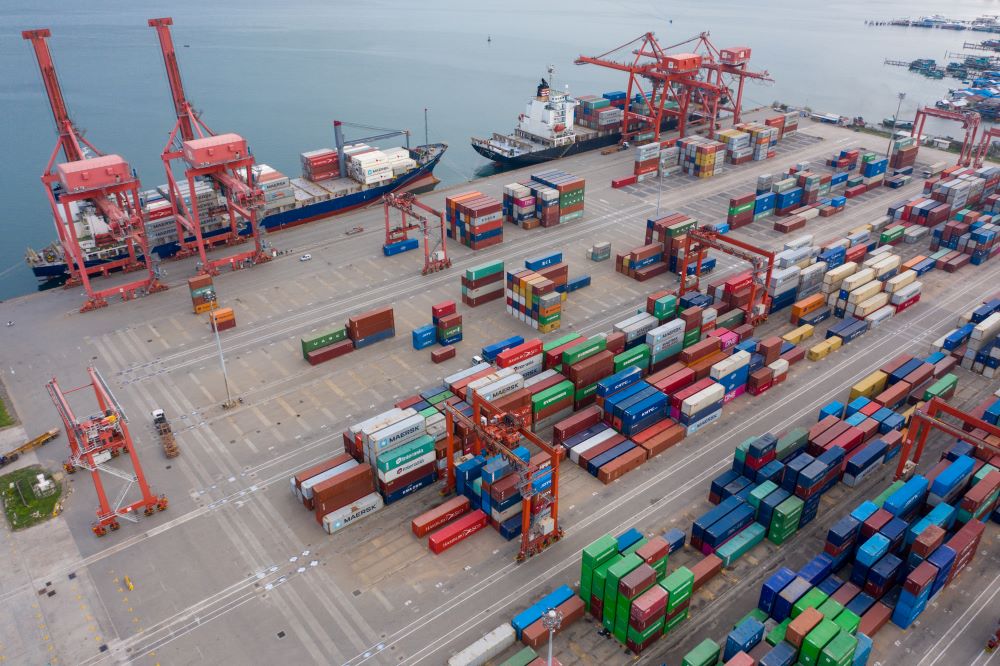
With over 60% of the global population set to go to the polls in 2024, the world is bracing itself for a significant amount of change. There will almost certainly be new leaders and governments around the planet, while successful incumbents will likely have different pledges to fulfil and altered political conditions to operate within.
This will inevitably alter the policy agendas of different countries, including those relating to international trade. This is as true for the UK as it is for other countries facing elections this year, including the US, India and across the EU with the European Parliamentary elections in May.
So, given the amount of change and unpredictability we know to be on its way, what can we say about what trade policy is going to look like in 2024?
The Institute of Export & International Trade’s (IOE&IT) policy team is predicting a shift from trade deal negotiation to a policy focus on implementation and utilisation, as well as an increased focus on the impact of the EU’s new Carbon Border Adjustment Mechanism (CBAM) and the UK’s development of its own equivalent.
Moving on from FTA negotiations
The policy team noted in its review of 2023 that the UK was starting to move beyond free trade agreements (FTAs) as being the be-and-all of trade policy. Ana Sofia German, a trade agreement specialist at IOE&IT, says that this shift could continue. She explains:
“In 2023, FTAs were central to the UK’s trade policy. We saw the entry into force of its first modern trade agreements as an independent trading nation with Australia and New Zealand, which represent the UK’s standard for its FTA policy.
“In 2024, a potential general election could lead to a change in trade policy objectives nationally. We might see a shift of the UK’s trade policy focus to the implementation and utilisation of existing trade agreements, while focussing trade talks on a few key markets.”
EU CBAM
The fall-out from the introduction of the EU’s new carbon border adjustment mechanism (CBAM) will also likely be a key theme this year, says Henriette Gjaerde, trade policy and engagement lead at IOE&IT. She explains:
“The EU CBAM is effectively a tariff on carbon-intensive products entering the EU, which was implemented in October 2023.
“Concerns have been expressed about it, especially in relation to the potential negative impact it could have on developing nations that trade affected goods into the EU, as well as possible legal challenges at WTO level.
“It will be interesting to see how other countries react to it, including the UK which announced it will be introducing its own CBAM at the end of last year.”
You can read more about the EU’s CBAM here.
UK CBAM
As Gjaerde notes, the UK confirmed its own plans to introduce a CBAM in December, with the government saying it could be implemented by 2027, “subject to further consultation in 2024”.
Hemita Bhatti, the IOE&IT’s head of trade policy, says it will be interesting to see how the development of a UK CBAM unfolds.
“It will be interesting to see what implications a UK CBAM will have on UK importers, as well as on developing nations exporting into the UK as they may need to pay tariffs.
“There are ways to navigate these changes and there will need to be sufficient business support and guidance around the new CBAM so that companies understand what the practical implications will be.
“It will also be enlightening in 2024 to see to what extent the UK CBAM aligns with the EU’s, and importantly how the UK and EU’s emission trading schemes link up.”
Sustainability trend
Gjaerde notes that, more broadly, 2024 could see a continuation of the trend for “environmental considerations becoming more integrated in trade policy, trade agreements and digital trade infrastructure”. She adds:
“At COP28, at the end of 2023, there was also a focus on the interplay between food systems, agriculture, trade and climate change, highlighting the urgent need for collaborative efforts in developing sustainable, localised food systems.
“This is facing some resistance from larger agricultural sectors, which is to be expected, and it will be fascinating to see how that progresses in the new year.”
E-commerce moratorium
German also highlights the upcoming 13th WTO Ministerial Conference (MC13) in February where a “key decision” could be made on “electronic transmissions”.
“The e-commerce moratorium is set to expire in March 2024, with some countries expressing that they will not aim to renew it.
“The moratorium, in place since 1998, stipulates that signatories will not impose tariffs on any electronic transmissions. However, some countries have now expressed that they are not looking to renew the moratorium on this following MC13, which could lead to tariffs on digitally transferred goods being introduced.
“The moratorium is expected to be a key topic at the Ministerial Conference.”
Trade as a force for good
Following the IOE&IT’s own work in 2023, at the WTO Public Forum in 2023, Gjaerde also thinks that inclusive trade will continue to be a focus for trade policy in 2024.
At the conference, IOE&IT facilitated the ‘Sustainable Trade: Indigenous Women’s Green Influence’ panel, which was formed of indigenous female entrepreneurs from Ecuador and New Zealand in partnership with the International Trade Centre (ITC).
“I think a focus on inclusive trade – including underrepresented groups such as women, indigenous and young people – is a significant trend and I hope this will continue to develop in 2024.”



